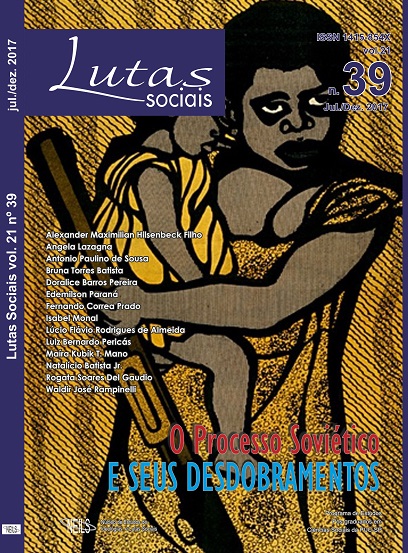Cinema and Revolution: Russian Constructivism and Dialectical Montage, Foundations of the Political Pedagogy of Eisenstein’s Images
DOI:
https://doi.org/10.23925/ls.v21i39.35878Keywords:
Russian constructivism, dialectical montage, pedagogy of images, Sergei Eisenstein.Abstract
Russian constructivism and the dialectical montage of images are the foundations of the practice and thought of the vanguard cinema of the Soviet director Sergei Eisenstein. In the context of the struggles and transformations unleashed by the Russian Revolution of 1917, Soviet cinema won international acclaim. Sergei Eisenstein’s filmmaking experiments with the methods of montage and explores socialist and Marxist themes. This article presents the main characteristics of Eisenstein’s work, his contribution to Soviet cinema and the pedagogical and political meaning of the montages in his films The Strike (1924), The Battleship Potemkin (1925) and October (1927).Downloads
Published
2017-12-31
How to Cite
Batista Jr., N. (2017). Cinema and Revolution: Russian Constructivism and Dialectical Montage, Foundations of the Political Pedagogy of Eisenstein’s Images. Lutas Sociais, 21(39), 64–76. https://doi.org/10.23925/ls.v21i39.35878
Issue
Section
Dossier
License
Matérias assinadas não expressam necessariamente a posição do coletivo da revista e são de exclusiva responsabilidade do(a)s respectivo(a)s autore(a)s.
Ao enviar seus textos, o(a)s autore(a)s cedem seus direitos à Lutas Sociais, que autoriza, com prévia permissão do Comitê Editorial, a reprodução das publicações, desde que conste o crédito de referência.



